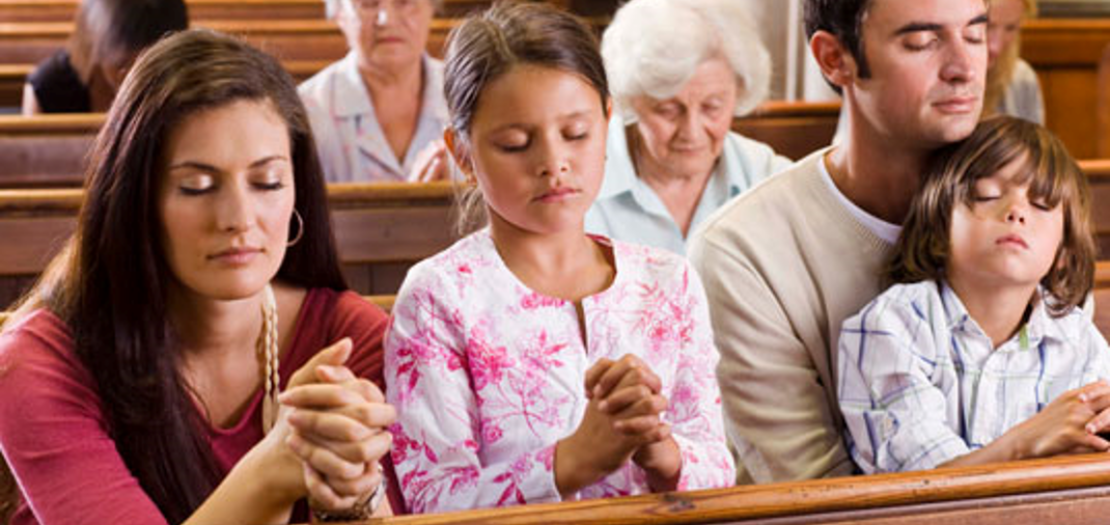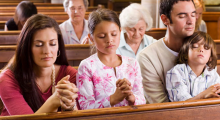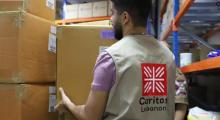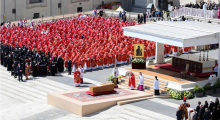Issued by the Catholic Center for Studies and Media - Jordan. Editor-in-chief Fr. Rif'at Bader - موقع أبونا abouna.org

Amidst international developments, the Middle East is experiencing crises, divisions, and conflicts that have imposed many social changes, negatively impacting family life and its growth its societies. In fact, this year's International Day of Families, which falls on May 15th of each year, bears a high level of injustice, violence, and hate speech.
Today, families face many challenges that impose repercussions on home education and the preservation of human values, which places them facing an uncertain future. Consequently, families are facing a wave of complexities that cast a shadow over their lifestyles and the interactions of their members.
A dangerous reality that families are facing today... a bitter truth we cannot ignore! The solution is stand still.
The Middle East Council of Churches (MECC)
Many initiatives are currently seeking to enhance national and cultural upbringing, as well as spiritual and human upbringing within families. For its part, the Middle East Council of Churches (MECC), since its founding, has been committed to supporting families on various psychological, health, social, and spiritual levels through various awareness programs it implements throughout the year. Therefore, awareness sessions contribute to empowering family members and developing their capacities to help them overcome life's difficulties with great hope.
In this context, the MECC, through its "Dialogue, Social Cohesion, and Human Dignity" program, organizes a series of lectures on the family and the most prominent challenges it faces, with the participation of researchers, university Professors, and students from various fields.
This is in addition to the media awareness campaigns which are being made by the MECC media through various materials, videos, episodes, and television programs that it produces and presents via its media and social media platforms. This aims to shed light on various social, humanitarian, and family issues, as well as the Church's perspective and response to the difficult living conditions that the region is facing.
Social and Psychological Levels
Sources indicate that family challenges can be divided into two parts. The first part is related to external factors that enter the heart of the family and affect its members. This is due to the economic, health, social, and security crises that burden citizens, in addition to the tense political situation and the high rate of emigration... all of which constitute factors that could destabilize the family's condition and its activities.
The second part is embodied in the relationship between spouses and their children. What is striking, in many cases, is the disparity in understanding certain concepts such as love, communication, and dialogue... Therefore, the educational mission has become one of the most difficult duties and the most important fundamental challenges. Not to mention the new social changes that are reflected in the anthropological transformation of humanity, some of which contribute to changing concepts of the family...
In this context, it must be emphasized that the family is the most important place for education on peace, where individuals learn how to deal with themselves and others in peace and fraternity, as well as to accept those who are different as human beings, citizens, and brothers and sisters. This allows them to achieve the same goals with other members of society and families in order to build a better future.
Spiritual and Church Levels
On the spiritual and Ecclesiastical side, sources point out that the greatest challenge in the age of rapid development and technology lies in self-isolation and the disconnection with God. This leads to a loss of openness to others and a refusal to communicate with them. What applies to the individual also applies to the family, as reconnecting with God is essential and fundamental in order to strengthen familial and social ties.
Church sources emphasize the importance of the upbringing provided by parents, particularly in living the Word of God through their actions and relationships with others and their children, as well as striving to maintain communication and dialogue among them. Therefore, Prayer within the family contributes to creating an atmosphere of reassurance and inner peace among children. The role of parents has also become increasingly important, particularly in instilling Christian values and the meanings of friendship, fraternity, and relationships with others.
From here comes the importance that the Church is being aware of these issues as part of its support for families and helping them face life’s challenges with deep faith. Therefore, the Church and its affiliated institutions implement diverse awareness and pastoral programs, in addition to various spiritual and guidance meetings and activities. This is in addition to the documents it issues and the special sessions held with Pastors for spiritual and faith follow-up.







